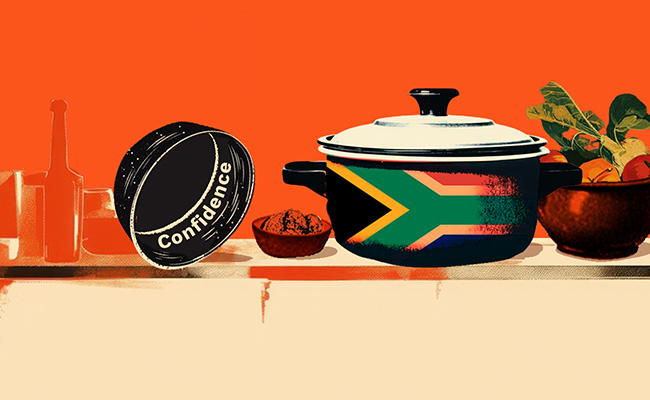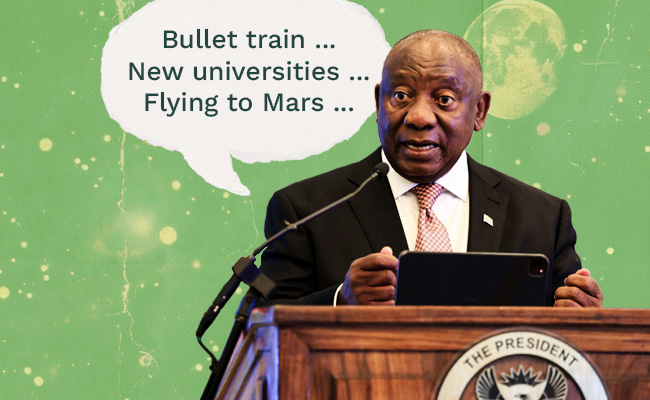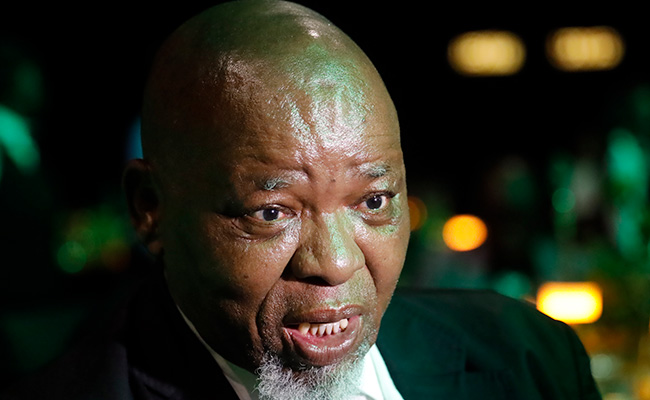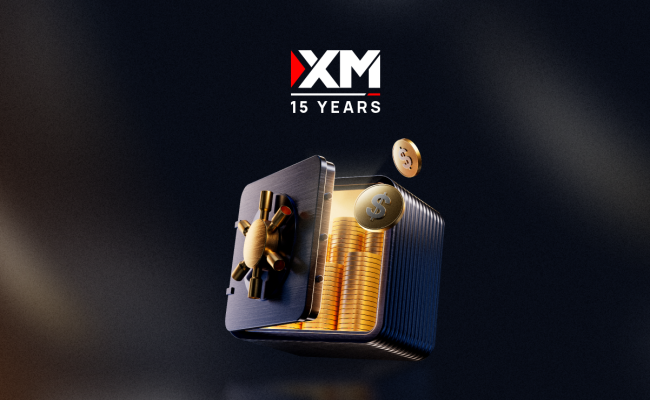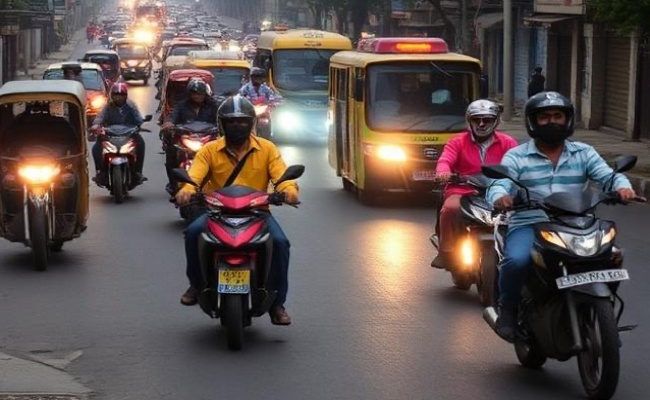For all the talk about structural reforms, fiscal consolidation and global headwinds, South Africa’s biggest economic constraint may be less tangible: confidence. Without it, private capital stays on the sidelines, investment lags and the economy won’t ignite.
“It’s about trust. Can I put money into this?” says Xhanti Payi, economist and senior manager at PwC. “Businesspeople look at the conditions around them and ask, ‘Can I risk it?’ Because risk is always there. The question is: is this a good time to take that risk?”
Business confidence, measured by the Bureau for Economic Research, has exceeded the neutral 50-point mark only twice since 2008, underscoring how pessimistic corporate leaders have become. Gross capital formation – spending on fixed assets such as buildings, machinery and infrastructure – has slid from about 22% of GDP in 2008 to 14% in 2024, according to the World Bank.
Economists say anything below 15% of GDP reflects stagnation, 15%-20% is adequate for modest growth, while 20%-25% is the healthy, expansionary range seen in faster-growing emerging markets. In July, the South African Reserve Bank (SARB) cut its growth forecast for this year to 1% from 1.2%, citing weak activity and risks such as possible 30% US tariffs on South African exports.
The power sector illustrates the challenge. While electricity supply has stabilised, factory owners remain sceptical about whether it will last. That hesitation explains why businesses, even with rolling blackouts easing, are not yet committing to major new capital projects, Payi says.
Politics and the ‘polycrisis’
Politics adds another layer of risk. The government of national unity (GNU), formed in 2024, has raised both hopes and fears. “We are really worried about where the GNU is,” Payi says. “Politicians know this is important, and they’re using it as a bargaining tool. If this thing breaks up, it could have huge implications.”
Globally, confidence is hostage to what Payi calls a “polycrisis world” – multiple crises reinforcing each other. “There’s Trump, mining cycles, electricity, the Middle East, oil prices – all happening simultaneously,” he says. “Unfortunately, those days of stability may be behind us. The best way to think about it is to understand your environment, look at where the noise is, and identify what actually impacts you.”
For Gina Schoeman, Citigroup’s South Africa economist and head of Central and Eastern Europe, Middle East and Africa economics, the reasons for pessimism shift with the headlines. “Last year, corporates said, ‘Okay, well, we need to know if the GNU is going to work.’ The year before that, it was, ‘Oh no, there’s load-shedding. We need the load-shedding to stop.’ If you fast-track to this year, 2025, it’s, ‘Oh my goodness, geopolitics, tariffs, trade.’”
Resolving one issue isn’t enough. “Load-shedding ticks one box,” Schoeman notes, “but they’re not suddenly just going to invest now, because there are still other things that need to happen. Transnet would be one … service delivery is a massive part of this.”
Aside from Eskom, it is also crucial that Transnet is put back into shape, Schoeman says. “If it works, you’re going to get an appreciation in the currency to a more fair value level and a steady currency that isn’t so volatile. Naturally, export volumes will increase, and that will help.” The third and “massive” component is service delivery, which is underpinned by municipal reforms, she says
Structural reforms remain the watchword. Schoeman says more progress is needed in energy, logistics, municipal reform and in the GNU itself “maturing”.
There are encouraging signs. Business Leadership South Africa has launched a reform momentum tracker, monitoring micro-level changes. “Between June and August, reform momentum has increased quite significantly,” says Schoeman. “Now that is a very good thing and also suggests that we should also be seeing an increase in confidence after that.”
But confidence depends on delivery. Unless momentum spreads to logistics, municipalities and digital infrastructure, investment will remain hesitant and growth subdued. “For investors, confidence depends not just on new legislation but on delivery,” Schoeman says. The tracker provides a tool to hold policymakers accountable for turning promises into tangible change.
Policy certainty needed
Sanisha Packirisamy, chief economist at Momentum Investments, says “the number one issue is policy certainty”. Fixed investment, she notes, “is held back when businesses lack a line of sight on reforms – regulatory, legal and political”.
On energy, Packirisamy highlights transmission as the bottleneck. “Five provinces have run out of grid capacity. Expansion is under way with help from Germany and France, but medium-term timelines dominate.”
On logistics, she tells Currency that ports may improve sooner, but rail is unlikely to recover before 2027. On water, monitoring is improving, “but real improvements in supply and quality will only come later”.
Policy uncertainty affects both businesses and households. For firms, it clouds the operating environment; for households, it erodes trust in government coherence. “If parliament debates issues early, if GNU parties meet regularly and resolve conflicts, then sentiment would lift – spurring investment, spending and job creation,” Packirisamy says.
Fundi Tshazibana, deputy governor of the South African Reserve Bank, links confidence directly to economic growth. “The biggest part of what is affecting growth is the low growth itself and confidence. You need to have an element of confidence in order to decide where you are going to put your money. And confidence is something that is very fickle,” she told a conference hosted by Nedbank last week.
“When you start to see that there are implementation programmes and things are being done on the ground, there is a place for your money to be invested and for you to see returns,” she adds.
She also stresses fiscal stability. “The extent of government borrowing is also what has been affecting the cost of capital in the country.” Treasury’s efforts to consolidate its budget will be critical to restoring confidence.
Monetary misalignment
Monetary policy has become another test of credibility. The SARB in June signalled a preference for a 3% inflation target before Treasury had decided. Finance minister Enoch Godongwana pushed back sharply.
Targeting 3% instead of the 3%-6% band would come at the cost of higher interest rates – and that means weaker investment and greater household strain, warns Payi. “The minister’s statement after the SARB’s announcement was a huge rebuke,” he says. “It came in very hard, partly because the way the SARB announced it was a bit blasé. Two institutions that should be talking looked like they weren’t.”
Packirisamy says the episode shows how even credible institutions can be unsettled by mixed messages. “The Reserve Bank has credibility and has signalled a lower target – markets welcomed that. But the finance minister contradicted them, creating uncertainty. Even in areas where fundamentals are strong, lack of policy alignment can rattle markets.”
Confidence can build quickly, but evaporates just as fast. After the May 2024 election, optimism briefly rose, only to fade when promised reforms failed to materialise. “Fixing this could quickly improve growth,” says Packirisamy.
Tshazibana is blunt: “We can’t have jobs without investment. We won’t even be able to raise sufficient tax revenue if there’s not sufficient investment.”
Ultimately, says Schoeman, the private sector is usually confident about economic conditions when they’re convinced that they’ll “make a return on their investment. That confidence comes because they’re profitable, and their profitability is improving. Their profitability improves because the cost of business has gone down and the ease of doing business has gone up.”
Top image: Rawpixel/Currency collage.
Sign up to Currency’s weekly newsletters to receive your own bulletin of weekday news and weekend treats. Register here.



